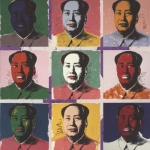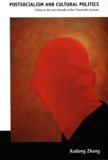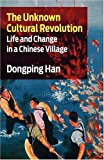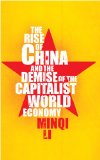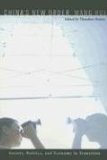Articles in the East Wind, West Wind Category
China Studies, Chinese Revolutionary History, East Wind, West Wind »
With a few, important exceptions much of the knowledge of modern China produced in the world either ignores or demonizes the Mao era as a long series of economic disasters and despotic politics. Think for example of popular books like Jung Chang’s and Jon Halliday’s Mao: The Untold Story, a veritable treasure trove of Cold War orientalism, or a somewhat more academic study like Frank Dikotter’s The Age of Openness: China Before Mao. This last makes a similar if implicit argument about Maoism and the revolution by presenting the middle-class’s semi-colonial era in urban centers like Shanghai as a utopian space of cosmopolitanism, wealth and freedom; this is then generalized into the real, secret story for China as a whole.
China Studies, East Wind, West Wind, Great Leap Forward, Rural China »
Utsa Patnaik: “On Famine and Measuring ‘Famine Deaths.’” Thinking Social Science in India: Essays in Honour of Alice Thorner. Ed. Sujata Patel, Jasodhara Bagchi, and Krishna Raj. New Delhi: Sage, 2002.
This is a long, dense and rigorous critique of the ways in which the death toll of the Great Leap Forward famine has been produced or ’socially constructed.’ More specifically it is a sustained engagement with the so-called pioneering work of Banister, Coale and Amartya Sen on the issue. From the inclusion of the “unborn” among the famine …
China Studies, Contemporary China, East Wind, West Wind »
This little bit of orientalist hysteria is from some journalist by the name of Guy Sorman, a right winger who has a recent book, full of words, entitled Economics Does Not Lie: A Defense of the Free Market in a Time of Crisis. Yes, speaking up for the free market these days is a real sign of bravery indeed.
Chinese Revolutionary History, East Wind, West Wind, Reviews, Rural China, stickyed »
This posthumous volume by William Hinton, author of Fanshen and arguably the single most important English language writer on the Chinese revolution from the land reform of the 1940s up through Tiananmen and the 1990s, is in many ways a fitting capstone to a career spent documenting revolutionary change in China and countering anti-communist and anti-peasant knowledge of China.

